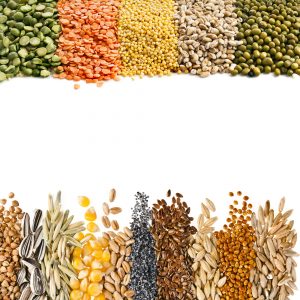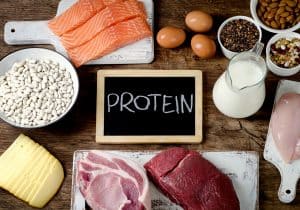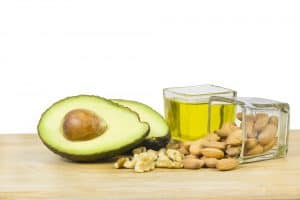
The holiday season is here and this often brings family gatherings, feasts, and added tempations.
However, there’s no reason that you have to doom yourself to inevitable holiday temptations only to fall into old habits.
Instead, let’s look at the top 15 ways to stay the course of your omad diet this holiday season to avoid derailing your weight loss journey.
1. Stay Physically Active
 Most people don’t connect the holiday season with much physical activity.
Most people don’t connect the holiday season with much physical activity.
Socializing, watching football games, opening presents, or visiting with family members are probably the most common activities during the holidays.
However, studies have shown that physical activity is the best way to stay in shape during the holiday – or any – season.
An activity day should include a variety of exercises and routines, including a visit to a gym, sports games, walks in the snow or even jogs.
Winter activities like skiing, ice skating, and snowshoeing are also a great choice. These activities provide you and your family with a way to bond during the season and create a fun, holiday-friendly sense of togetherness.
Studies show that this kind of familial exercise is not just physically healthy but may benefit your overall mental health as well. Even going for an indoor walk (such as the mall) for Christmas shopping is a better option than frequently sitting at family events.
2. Sleep Well
 People often have very poor sleep schedules during the holidays.
People often have very poor sleep schedules during the holidays.
For example, many parties take place during the holiday season.
Others struggle to sleep because they are stressed out about shopping or upcoming holiday events.
Studies have shown that people who sleep poorly often feel hungrier when they wake up.
As a result, they are more likely to binge. Even worse, they are also expected to be more sluggish and struggle to get up in the morning, which may make any physical activity even harder.
Try to set a strict sleep schedule that you follow every day to avoid restlessness. Aim for at least 8-10 hours of sleep and avoid sleeping longer. Excessive rest is often just as difficult as a lack of sleep and may trigger snacking urges this holiday season.
3. Manage Your Holiday Stress
 Stress during the holiday season is sometimes inevitable.
Stress during the holiday season is sometimes inevitable.
However, it is still a serious problem that can derail your omad diet.
That’s because studies have shown stress causes a high amount of cortisol in the body.
This hormone triggers excessive weight gain by making a person feel hungrier than normal or causing them to retain more body fat than they need.
As a result, try to keep your stress levels minimized as much as possible.
A little planning, such as spreading out your Christmas shopping earlier instead of in a few days, is a good start. However, you can also perform relaxing activities, such as taking a hot bath, going for a dip in a swimming pool, or a little yoga to calm your mind.
4. Eat Plenty of Fiber
 Like most people, there’s a good chance that you likely don’t get enough fiber in your omad diet.
Like most people, there’s a good chance that you likely don’t get enough fiber in your omad diet.
It is important to note that fiber causes you to feel fuller faster and will trigger a faster metabolic rate.
As a result, your foods will be digested more effectively, and you’ll feel healthier.
Feeling fuller will help with the temptations of holiday snacking as well.
Try to eat foods such as rich vegetables, legumes, nuts, seeds, and fruits as much as possible during the holiday season.
5. Avoid Excessive Cooking
 Cooking your food during the holiday season might seem like the best way to keep your omad diet on track.
Cooking your food during the holiday season might seem like the best way to keep your omad diet on track.
After all, you would be doing a task that kept you busy.
However, that isn’t always quite the case.
Unfortunately, people who cook a lot often do a lot of taste testing to ensure that their dishes taste good.
That doesn’t mean that you shouldn’t cook at all.
The holiday season is all about making and sharing great food with your family.
However, it would help if you tried to limit the amount of cooking you do every day.
Don’t be afraid to bring a few store-bought foods for a handful of your omad diet meals. While perhaps not as healthy, they do limit your potential for taste testing.
6. Don’t Ignore Protein

There’s a good chance that most of your favorite holiday omad diet meals are very high in carbohydrates.
That is not an accident.
Most holiday foods are made out of bread that is rich in sugar and activates high levels of insulin. Unfortunately, high insulin levels can cut down your ability to lose weight.
Try to balance your carb-rich foods with a minimum of 25-30 grams of protein at each meal.
Eating protein helps to improve your digestion, makes you feel fuller than you would without protein, and can lower your insulin levels.
In fact, high-protein and fat diets may even trigger ketosis, which burns fat instead of sugar for your energy and helps you lose weight.
7. Drink more Water
 Drinking water is one of the most effective ways of managing your omad diet through the holidays.
Drinking water is one of the most effective ways of managing your omad diet through the holidays.
First of all, it will help prevent hunger pangs and prevent overeating.
Just as importantly, ice water can promote weight loss by increasing your metabolism.
Try to add a glass of cold water or cold unsweetened ice tea to your one meal to avoid the need to overeat and help you to feel fuller.
8. Avoid Excess Sugar
 Try to keep sugar out of your holiday omad diet as much as possible.
Try to keep sugar out of your holiday omad diet as much as possible.
I know it can be hard to do with so much delicious food available, but it’s important to look for alternatives.
Fruit can be a great choice here because it can help manage your sugar cravings without adding excessive amounts of sugar to your omad diet.
Just as importantly, it will keep your insulin level balanced and avoid any serious side effects.
9. Eat More Veggies with your One Meal
 Vegetables might not be popular during the holiday season, but they can provide excellent benefits for people who are struggling with their omad diet.
Vegetables might not be popular during the holiday season, but they can provide excellent benefits for people who are struggling with their omad diet.
Filling up on vegetables will fill you with good fiber in a way that you can’t get with other types of foods.
Even if you have to dip dried veggies in a bit of ranch – or even honey – to enjoy them, veggies are still a better choice than holiday cookies or chips.
Just as importantly, you can add a broad array of vegetables to casseroles and other dishes to enjoy their benefits.
10. Avoid Processed Foods

Most people know that processed foods are not healthy to consume in large amounts.
However, their cheap nature and their diversity of use make it hard to avoid using them during the holiday season.
Unfortunately, most typically contain large amounts of sugar and preservatives as well.
They are also low in nutrients, fiber, and contain many artificial ingredients.
This will lead to cravings and make it even more difficult to maintain your omad diet.
Be sure to read any food label ingredients carefully so you can avoid this pitfall.
11. Have a plan to deal with Peer Pressure
 One of the worst problems that affect people trying to stay with their omad diet during the holiday season is excessive peer pressure.
One of the worst problems that affect people trying to stay with their omad diet during the holiday season is excessive peer pressure.
This problem occurs when family members – perhaps meaning well – pressure you to eat food that you may not want.
As a result, you end up snacking or overeating to please them.
Dealing with peer pressure can be a hard thing at times, but never lose site of what your individual goals are in the long-term.
12. Create a Plan for Holiday Events
 The holiday season is filled with a large number of meals and events.
The holiday season is filled with a large number of meals and events.
Consider the benefit of creating a meal plan that will help you get through these events, yet enjoy your time with friends and family.
Plan your eating window accordingly to the scheduled holiday event.
Planning like this helps to stay consistent with your omad diet and decrease the risk of problematic temptations and overeating.
13. Avoid Buffet Meals
 Holiday parties often have a buffet-style meal that makes it easier for you to pick and choose whatever food that you want.
Holiday parties often have a buffet-style meal that makes it easier for you to pick and choose whatever food that you want.
Buffet meals can be one of the most tempting events to overeat.
Here are some tips to avoid overeating on a buffet meal:
- Don’t sit facing the buffet and try to sit as far away from as you can. This will avoid added temptation.
- Before grabbing a plate, tour the buffet and decide on which dishes you want most. Give yourself a limit – say four to five items – to force yourself to pare down options. To keep portion sizes in check, choose a small plate. This naturally limits how much you can load up on at one time.
- Always eat vegetables before you eat anything else. Go for a salad with variety like radishes, peppers, broccoli, onions, sprouts, olives and chickpeas.
- Be Social. If the buffet is at a friend’s or relative’s house or an office party, use the occasion to be social. Make the effort to spend more time on conversation than filling up your plate.
14. Start Meditating
 A growing number of people are turning to meditation, self-hypnosis, and general mindfulness as a way of avoiding weight gain during the holiday season.
A growing number of people are turning to meditation, self-hypnosis, and general mindfulness as a way of avoiding weight gain during the holiday season.
These activities may seem a little far out to many people, but an increasing number of studies showcase that these activities can seriously help with weight loss.
Essentially, mindfulness and meditation make it easier for you to understand how your body is reacting to food.
As a result, you’ll be more likely to realize you are full when you are mindful of what you are eating than if you weren’t mindful.
Simple mindfulness activities include eating slower to trigger feelings of fullness, paying attention to how each bite feels in your stomach, and paying attention to how food makes you feel. In this way, you can avoid overeating and can enjoy the holiday season even more.
15. Eat More Healthy Fats
 Many people think that fat is mostly unhealthy.
Many people think that fat is mostly unhealthy.
Healthy monounsaturated and polyunsaturated fats are essential to your omad diet and have many benefits.
For example, fats from foods like nuts, olive oil, and guacamole will help you feel full and decrease holiday-related overeating.
Just as importantly, fats can give you more energy to attack the day and make it easier for you to exercise.
Conclusion
As you can see, sticking to your omad diet during the holiday can be challenging, but can be achieved.
Following these tips make it possible to not only avoid falling off the omad diet, but to also enjoy the holiday season with family and friends without worrying about weight gain.
Sources
Liquid Calories and the Failure of Satiety



